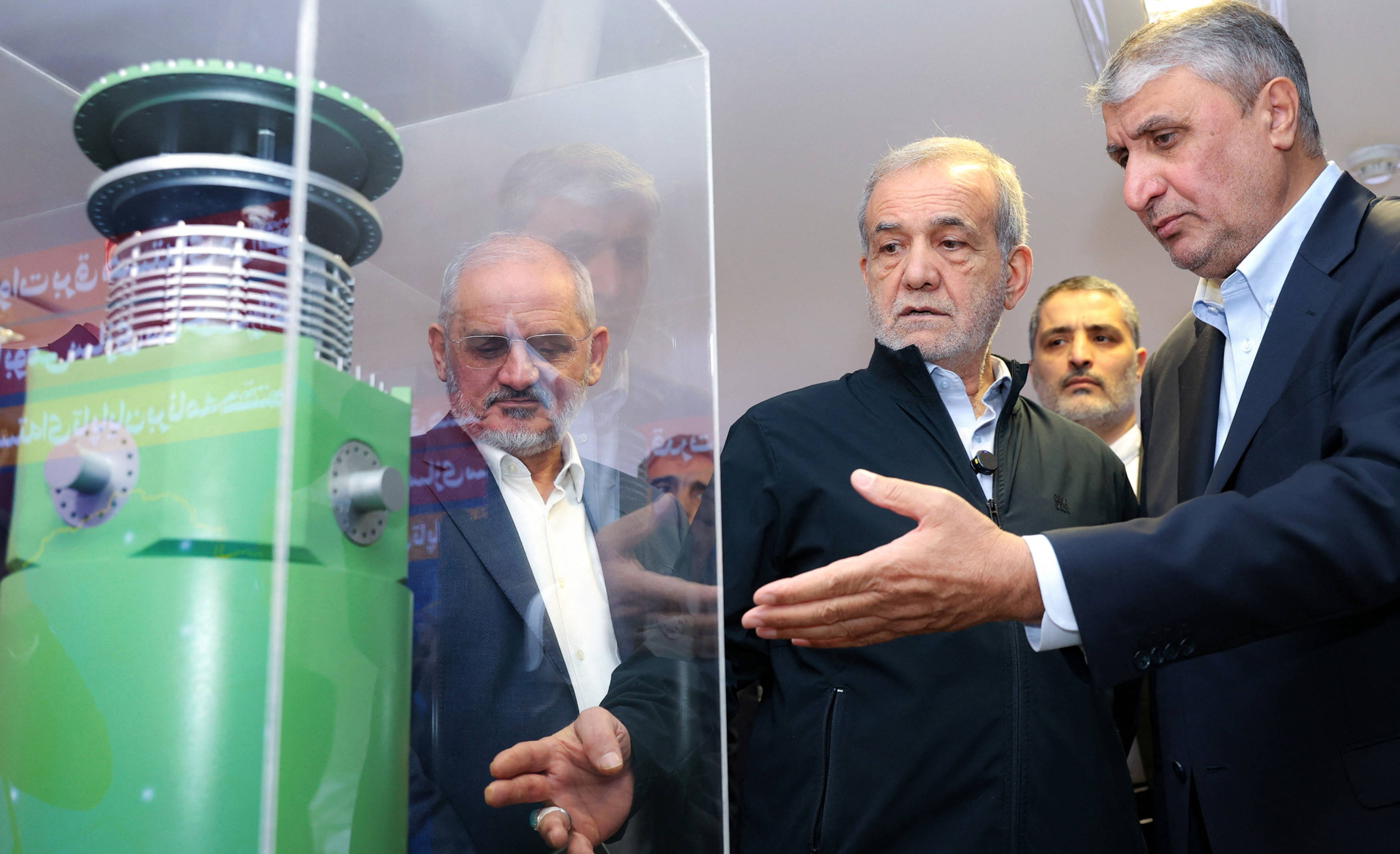Iranian press review: Indirect talks with US prompt ridicule

Public ridicule follows Iran-US talks announcement
Confusion over whether Iran is engaging in direct or indirect talks with the US has prompted satire among Iranian social media users. The mockery was fuelled by Supreme Leader Ayatollah Ali Khamenei’s recent declaration that negotiating with Washington was neither wise nor honourable - just days before the talks were announced.
Donald Trump made a surprise announcement on Monday that the United States and Iran were set to begin direct talks on Tehran's nuclear programme, but Iran's foreign minister said the discussions in Oman would be indirect.
Iranian officials had previously said they had not received any response regarding the talks. However, following Trump’s statement, they confirmed that negotiations would begin next Saturday.
Hossein Bastani, a veteran analyst of Iranian politics, responded to the situation with a humorous post on X: “‘This Trump has a big mouth’ - the possible reaction of the ‘establishment’ to the announcement of the talks.”
New MEE newsletter: Jerusalem Dispatch
Sign up to get the latest insights and analysis on Israel-Palestine, alongside Turkey Unpacked and other MEE newsletters
Iran’s insistence on indirect talks and the US’s push for direct talks have also become subjects of online jokes. One user asked Bastani: “What do indirect negotiations mean? Do they turn their backs to each other and talk?”
Bastani replied: “Probably. They’ll also speak bitterly, to make it clear they haven’t reached any agreement.”
Another user wrote sarcastically on X: “What kind of indirect negotiation is this, with both [Foreign Minister Abbas] Araqchi and Trump’s representative present?! Does it mean, Araqchi is in one room and Trump’s representative in another, with someone in the middle passing messages between them?!”
Rescue helicopter used as grass dryer
The use of a Red Crescent helicopter to dry the grass at a football stadium in the western Iranian city of Khorramabad has sparked criticism over using rescue helicopters for non-emergency purposes. As a result, three Iranian Red Crescent employees have been suspended.
On Monday, a video went viral on Farsi media showing a rescue helicopter flying just above a football pitch. Officials said the field was wet after several days of rain, and the helicopter’s rotor blades were used to dry it.
Before the video was released, Ehsan Nasser, the CEO of the Khyber Khorramabad football team, said in another video on the club’s Instagram page that the operation had been coordinated with the governor of the province. He added that the helicopter flew over the pitch for nearly an hour.
After the story caused controversy, Masoud Abdi, the owner of the club, said it had paid the Red Crescent for the flight. He also thanked the organisation and asked that the suspensions of its officials be reconsidered.
Iran warns 4,000 US troops may face death
Rising tensions between Iran and the United States, along with the deployment of US bombers to the Diego Garcia base, have prompted Iranian military-affiliated media to issue threats against American targets in the region, including the Indian Ocean island base itself.
The Defa Press news agency, affiliated with Iran’s Armed Forces, published a report highlighting the country’s military capabilities, stating that “the Diego Garcia military base is within range of Iran’s medium-range missiles and drones”.
Citing Iran’s 15 Khordad and Bavar 373 defence systems, the agency deemed a potential air strike against Iran unlikely. It outlined several possible responses in the event of an attack, including a direct drone strike using Shahed-136 drones, which have a range of approximately 4,000 kilometres.
The report also directly threatened US personnel stationed at the base, saying: “There are 4,000 American soldiers present at this military base, and they may be spending the last days of their lives.”
The last direct military confrontation between the two nations occurred in 2020, following the US assassination of Qassem Soleimani, a top commander of Iran’s Islamic Revolutionary Guard Corps (IRGC), in Baghdad. In retaliation, Iran launched a missile attack on the US military base at Ain al-Assad in Iraq.
Jailed journalist warns against intelligence traps
In a letter from prison, Reza Valizadeh sent a warning to his fellow journalists outside Iran to be cautious about getting trapped into returning to the country.
Valizadeh, who had spent 14 years working as a journalist abroad, returned to Iran in February 2024. After multiple summonses and interrogations, he was sentenced to 10 years in prison.
In his message, Valizadeh addressed the situation of journalists outside Iran who had lost their jobs due to US President Donald Trump’s decision to cut foreign aid to Voice of America and Radio Farda.
Valizadeh urged journalists working for media outlets outside Iran “to be careful of being trapped by hybrid hunting projects”.
He added that those journalists may have personal reasons, such as missing their families, for wanting to return to Iran.
But he also pointed out that Iran’s intelligence agencies might be using their closest friends to convince them to come back, especially now that it is “the hunting season for intelligence agencies, following the interruption of Radio Farda and Voice of America's activities”.
* Iranian press review is a digest of news reports not independently verified as accurate by Middle East Eye.
middleeasteye.net